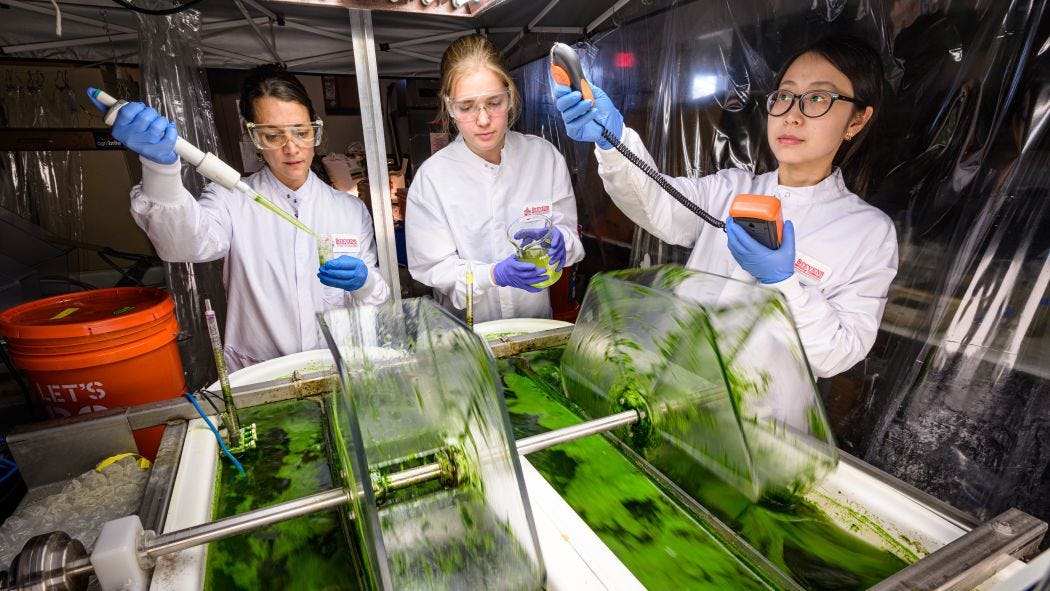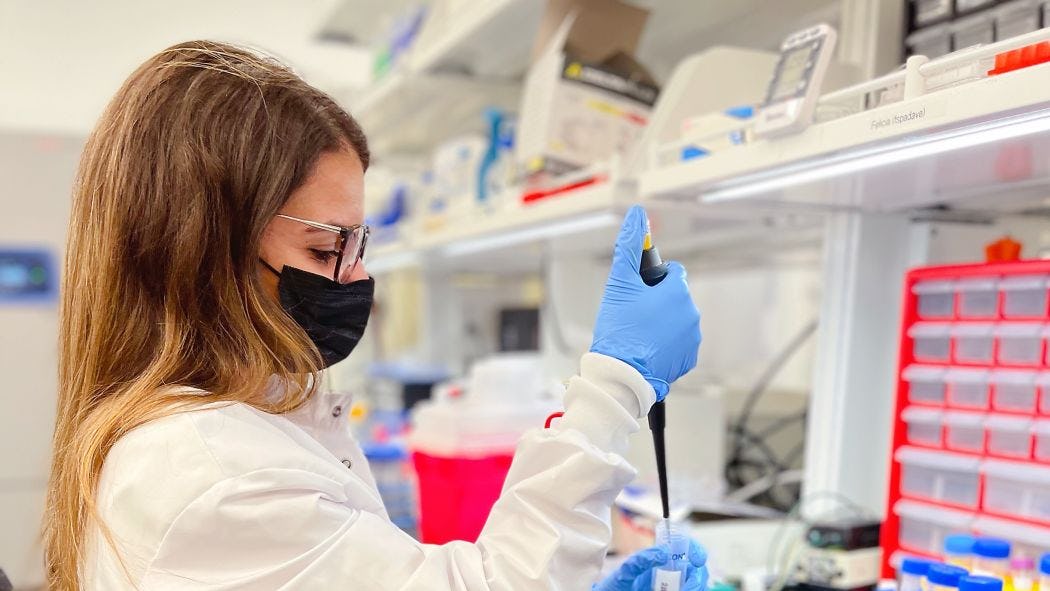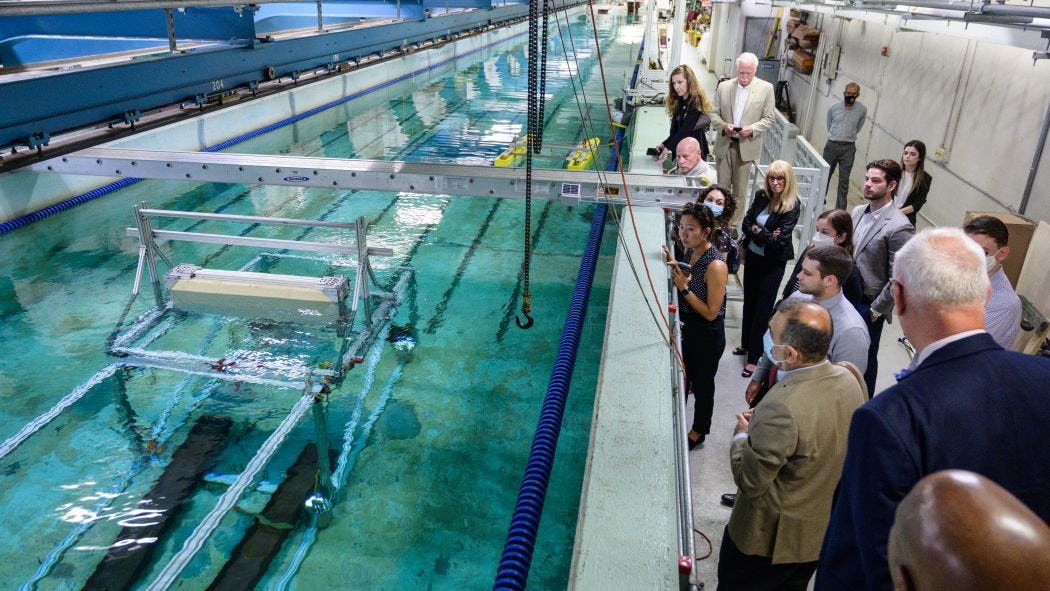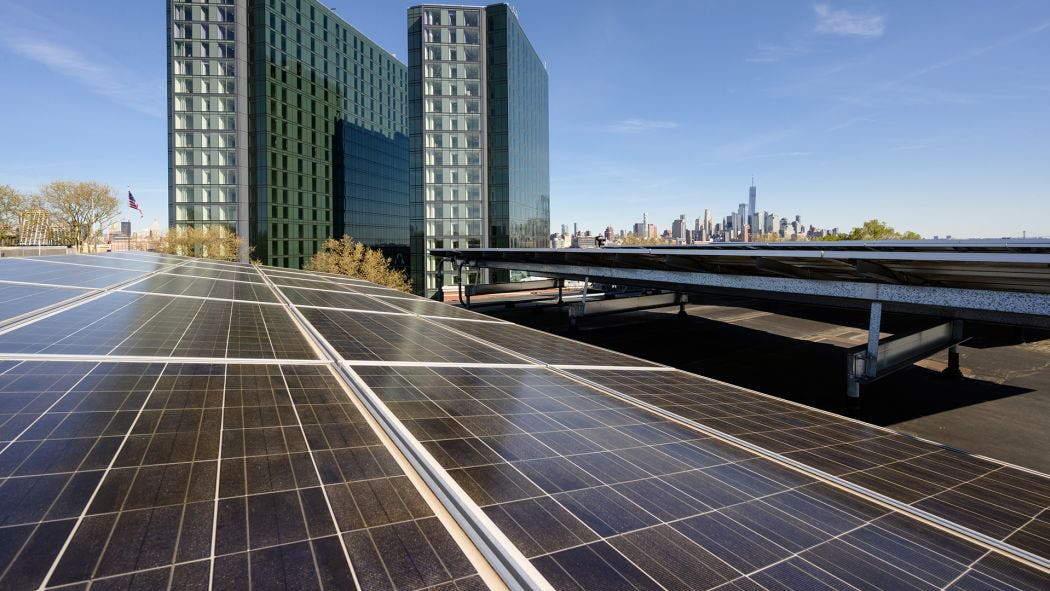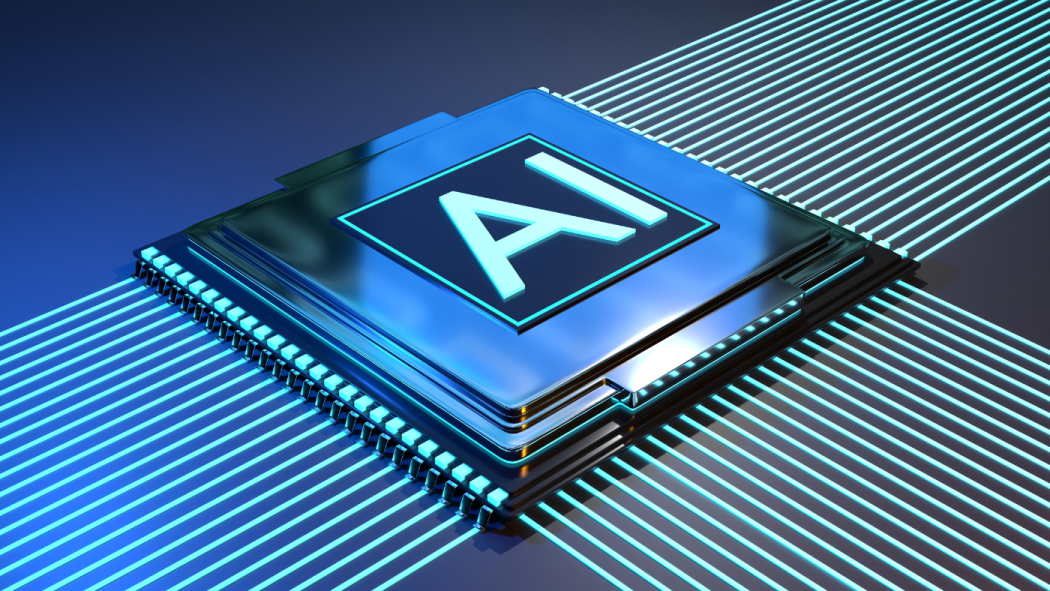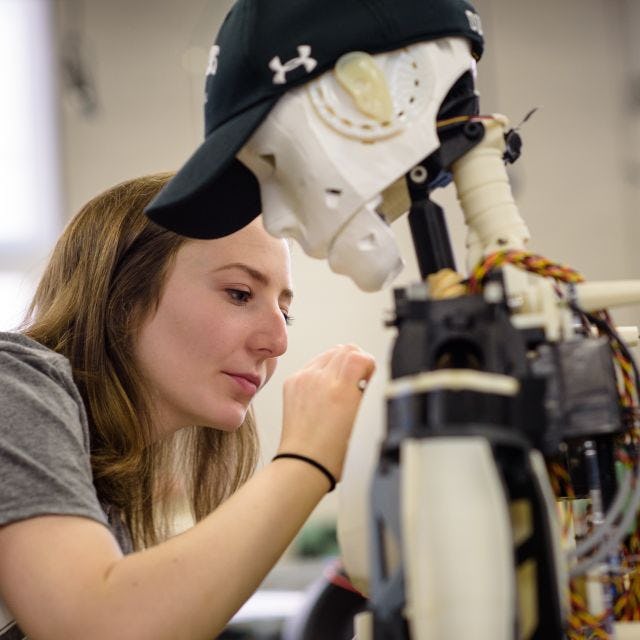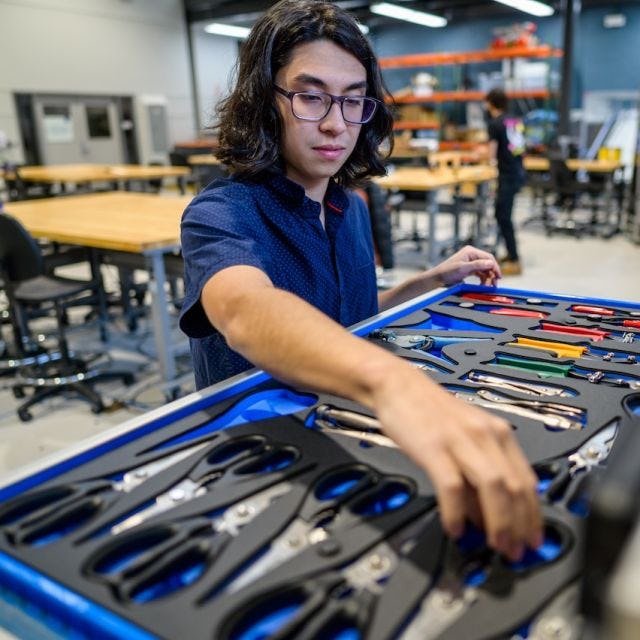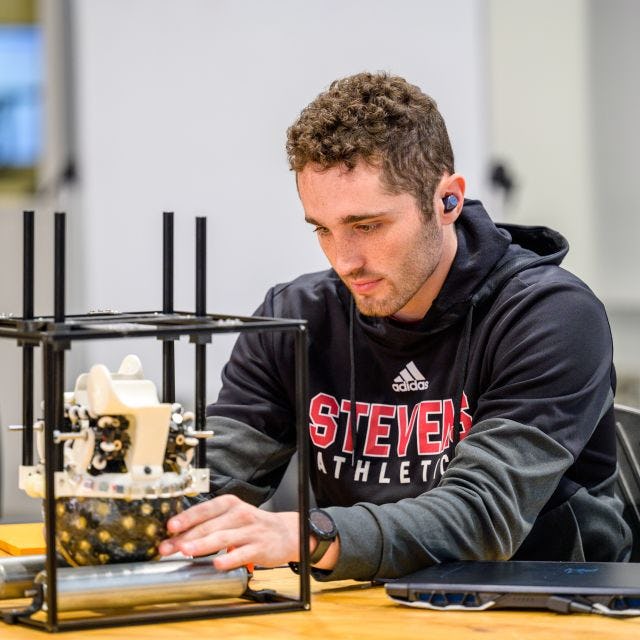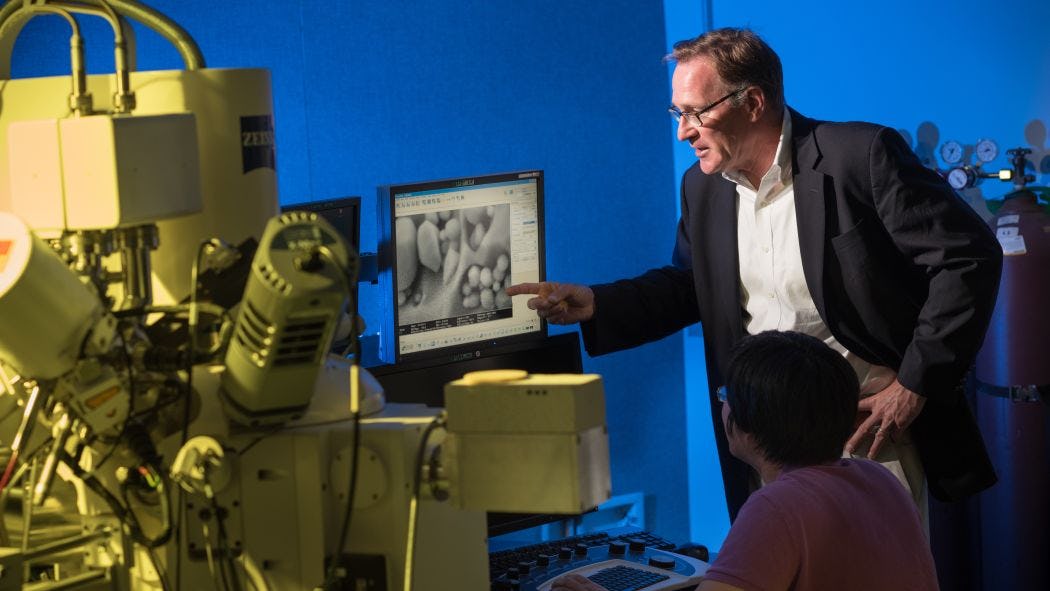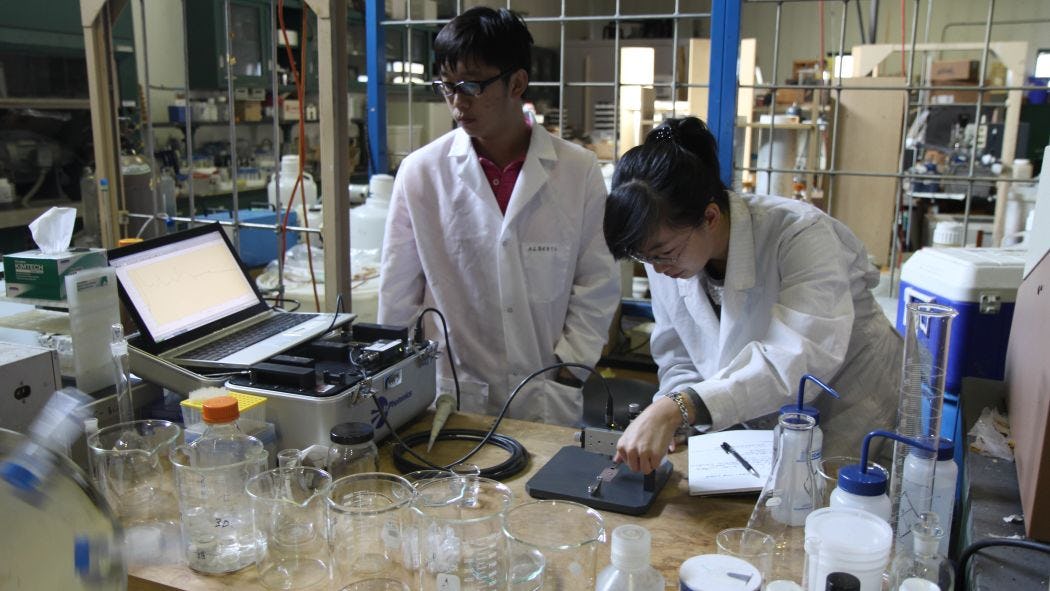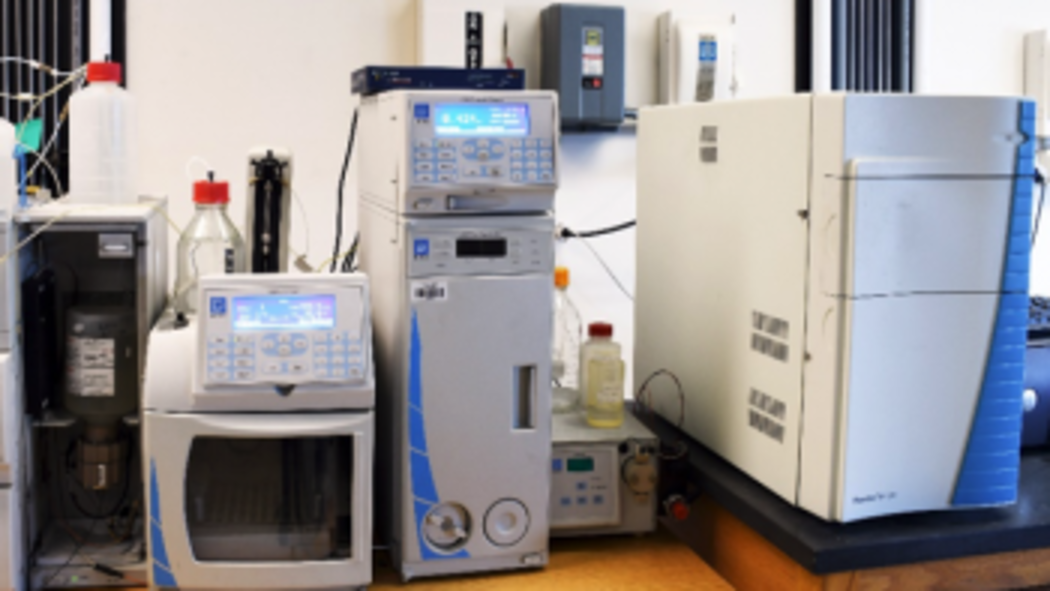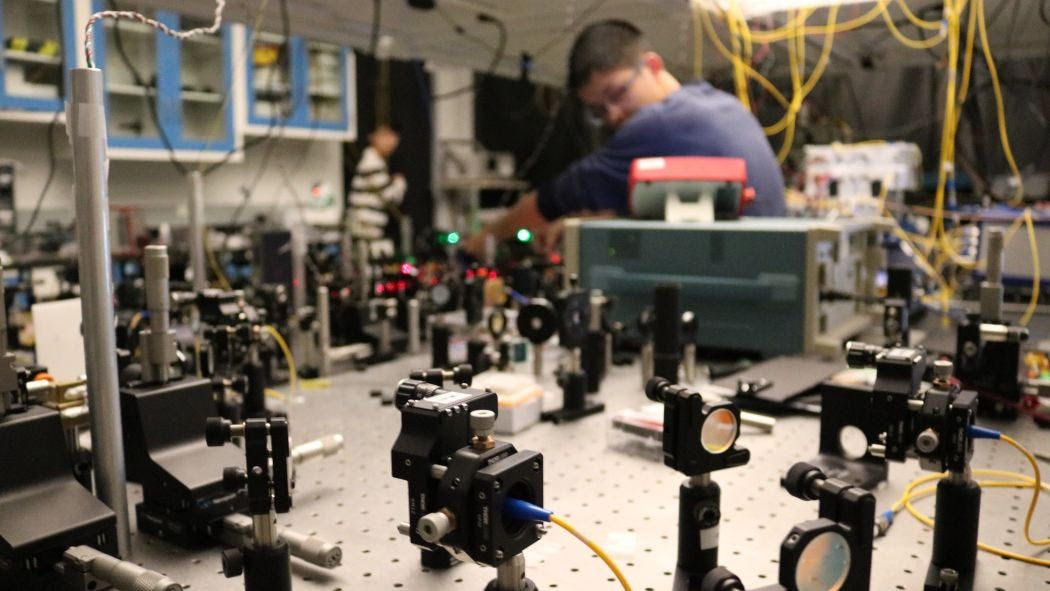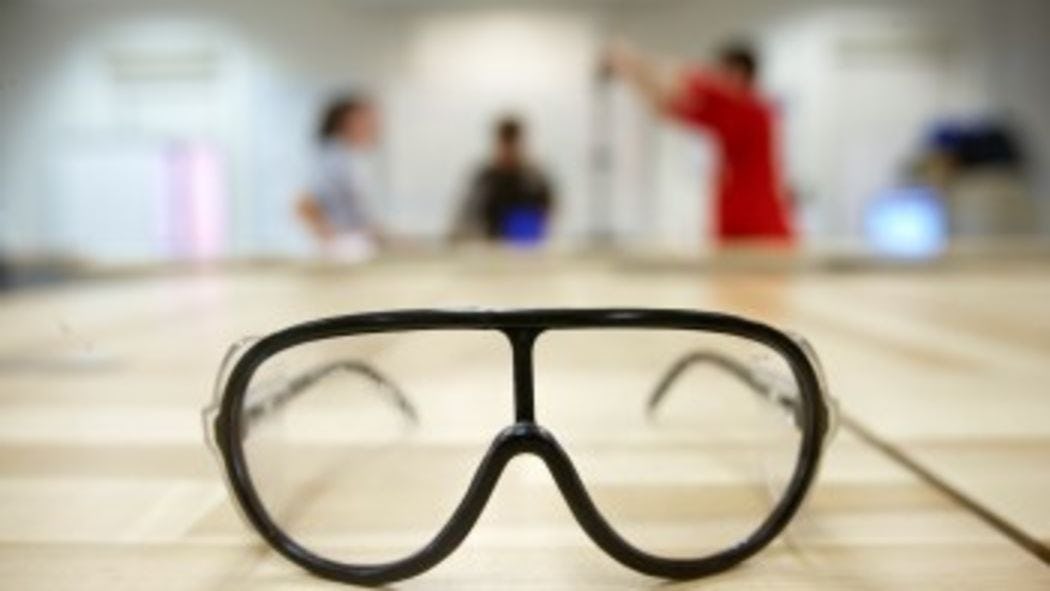The Charles V. Schaefer, Jr. School of Engineering and Science at Stevens Institute of Technology is home to a vibrant, interdisciplinary research culture and numerous collaborative research centers seeking innovative solutions to address modern challenges at the nexus of science and engineering.
Discover What Researchers Can Do At Stevens
Numerous research centers across a wide variety of research fields at Stevens Institute of Technology are housed within the Schafer School and it's departments, or are run by our faculty, including our National Centers of Excellence, the Systems Engineering Research Center (SERC), a University Affiliated Research Center (UARC) of the U.S. Department of Defense.
In addition to our research centers, the Schaefer School also houses several shared facilities with state-of-the-art instrumentation and fabrication equipment which are available to all members of the Stevens community and in some cases, outside investigators.

